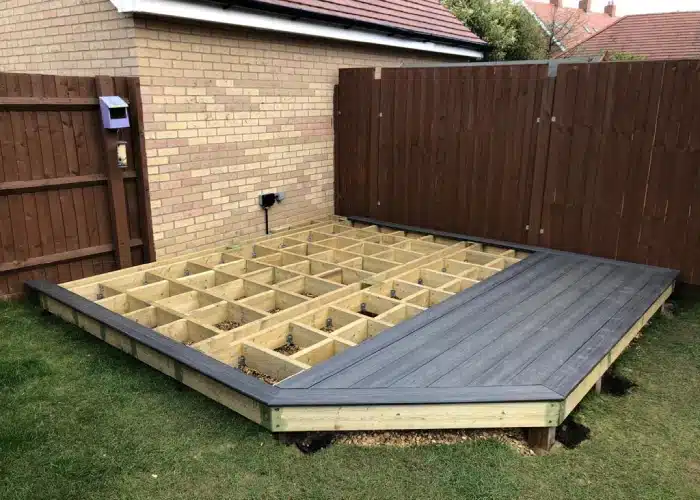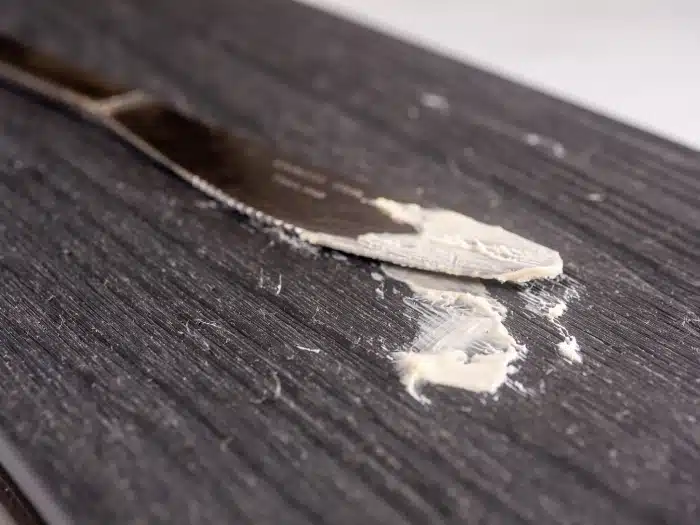How Far Apart Should You Place Your Joists?
The best timber to use for composite decking joists should be able to resist moisture, rot and insects. If you use good wood to build your decking joists, the decking will be structurally sound and not prone to collapse over time. So, what is the best timber for decking joists?
What is a Decking Joist?
Decking joists give you the structural framework to enable you to lay your wood or composite decking on. Using the best timber for decking joists is important to ensure that the decking is structurally sound and will stand the test of time. Your decking joist plays a key role in ensuring your decking boards wont bend, rot or sag, so using the correct joists are key to your decking life span.
Factors to Consider When Choosing Timber for Decking Joists
Location
When choosing the best timber for decking joists, choose a wood that can thrive in different areas. Some kinds of wood are more prone to absorbing water, this leads to rotting and structural failure of you deck, for example untreated wood would be a poor choice for ground level decks and aren’t best suited for damp environments, you can seal them before use of course, please see this advise on question and answer site in relation to this.
Our advise would be to ensure you choose a type of wood that can withstand harsh and wet weather, pressure treated wood, cedar or hardwood do have increased resistance to moisture and rot, when compared to untreated timber.
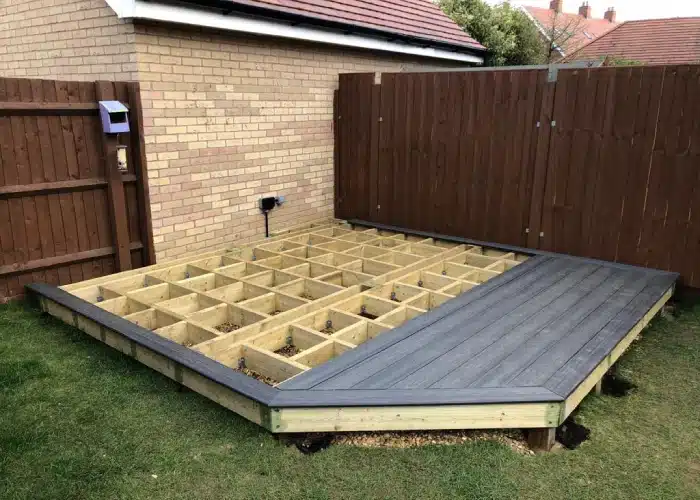
Budget
Apart from the location, you also need to consider costs. The amount you want to spend on timber joists should meet your budget. There are joists that are expensive example hardwoods and cedar, there are some that are less expensive, pressure treated wood and untreated wood. Considering your budget will help you to choose a timber type to fit your requirements, but do bare in mind the overall cost and time of replacement, using untreated wood will be cheaper but they come with a shorter life span, our advise would be to use c16 pressure treated joists
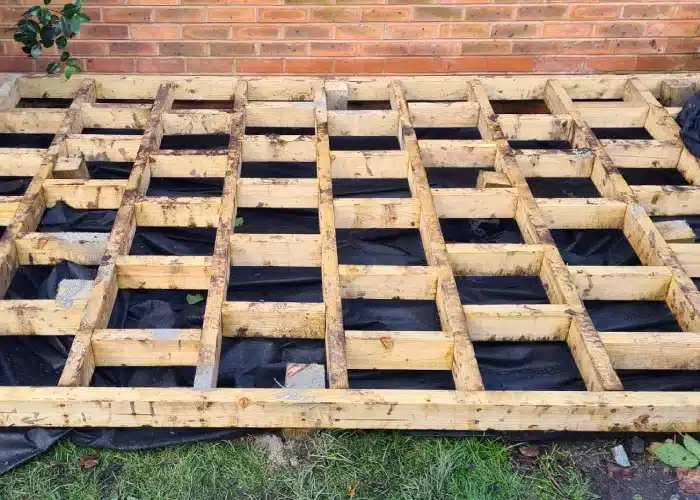
Availability
How available is the timber you intend to use in your area? When considering the best timber for a decking joist, ensure you choose a kind that’s not in shortage. Hardwood like ironbark, spotted gum and others hardwoods are a lot more challenging to purchase, a simply google search will show this, The main decking joist available here in the U.K. are untreated and pressure treated softwood.
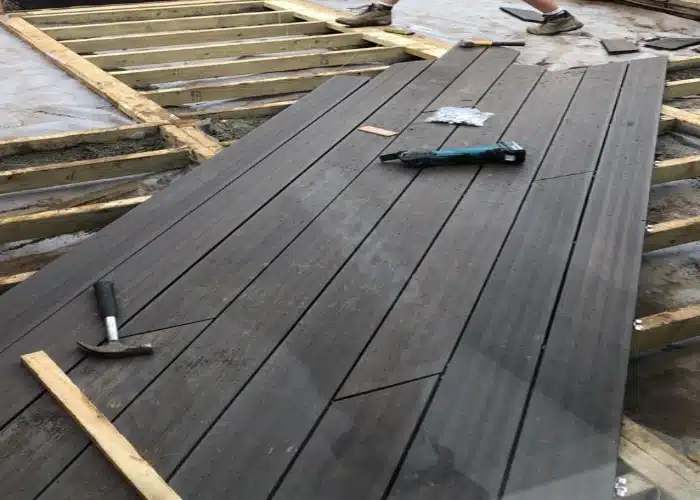
Maintenance
When choosing the best timber for decking joists, keep in mind that it will still need some form of maintenance. Some timbers require less cost to maintain them than others for example hardwoods have natural resistance to moisture and rot and pressure treated are built to resist moisture and rot for longer periods compared to untreated wood.
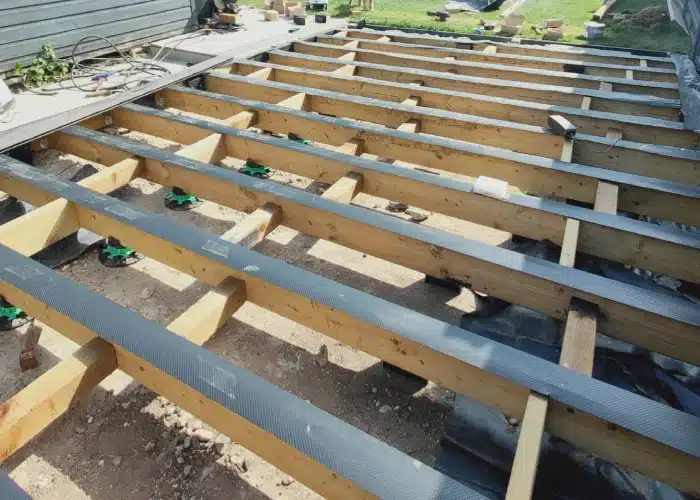
The Best Timbers to Use for Decking Joist
Ironbark
Ironbark is a hardwood and very durable, making it the best timber for decking joists. Apart from its durability, Ironbark has some other properties. It is resistant to fire and insects. Which means its a durable and long lasting timber. These attributes of Ironbark make it one of the best woods for decking joists.
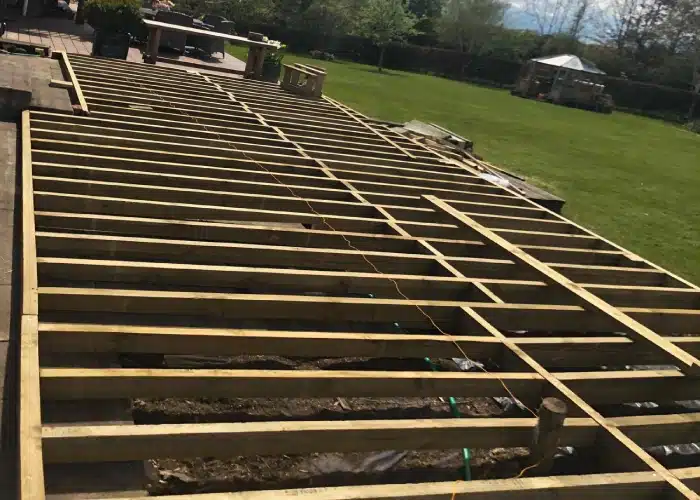
Spotted Gum
Another kind of timber that is suitable for decking joists is Spotted gum. Spotted gum is a very strong and durable timber. It is suitable for decking joists because of its strength and durability. Like Ironbark wood, Spotted gum is also resistant termites and offer some resistance to fire.
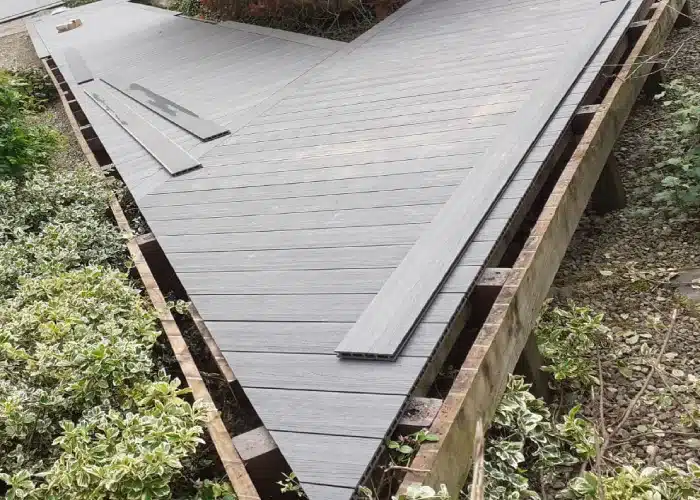
Cedar
Cedar is also another excellent choose for timber joists. There are red cedar and white cedar types. Cedarwood can thrive in various climate conditions. You can use cedar for decking joists in any region, no matter the climate. Cedar is also resistant to moisture, decay and damage caused by insects making it a good choice for decking joists.
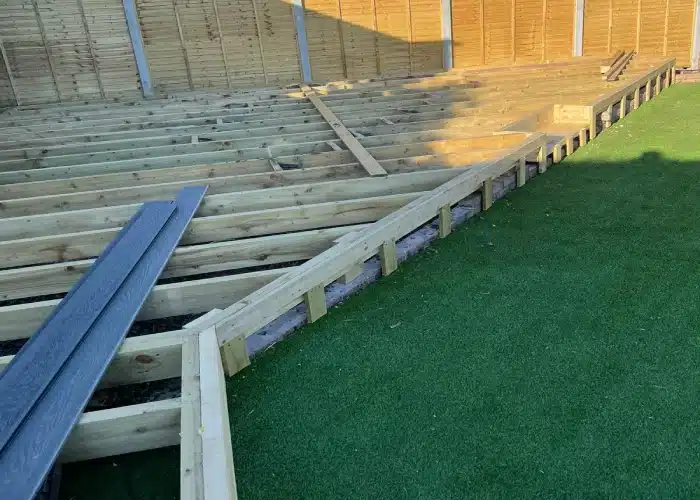
Pressure-Treated Pine
Pressure-treated wood is also good for decking joists. It is a kind of timber that is versatile and easy to work with. However, it does not have a beautiful appearance like other timbers. It is less expensive and favourable for those with a small budget. Apart from that, pressure-treated pine is resistant to insects and rot. The chemicals infused into the wood make it hard for insects to eat it. While it is not aesthetically pleasing like hardwood, it is an affordable timber to use for decking joists.
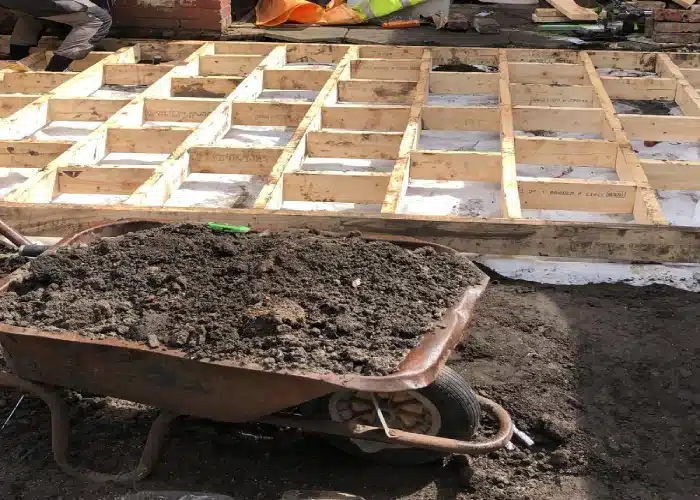
Conclusion
The best timber for decking joists should be a kind that is resistant to moisture, insects, decay, or rot. Timbers like Cedar, Ironbark, Spotted Gum, and pressure-treated pines are good to use as decking joists. That said, if you have the budget, choose composite joists which will not rot, warp, decay or splinter. They are also water and moisture resistant and can last for many decades.
Its important to note that hardwood can be challenging to purchase as decking joists and the most commonly and readily available wood for decking joists are pressure treated, untreated and composite. If you do choose hardwood you may have to wait and must request at your local specialist timber merchants.
How to Remove Grease From Composite Decking



